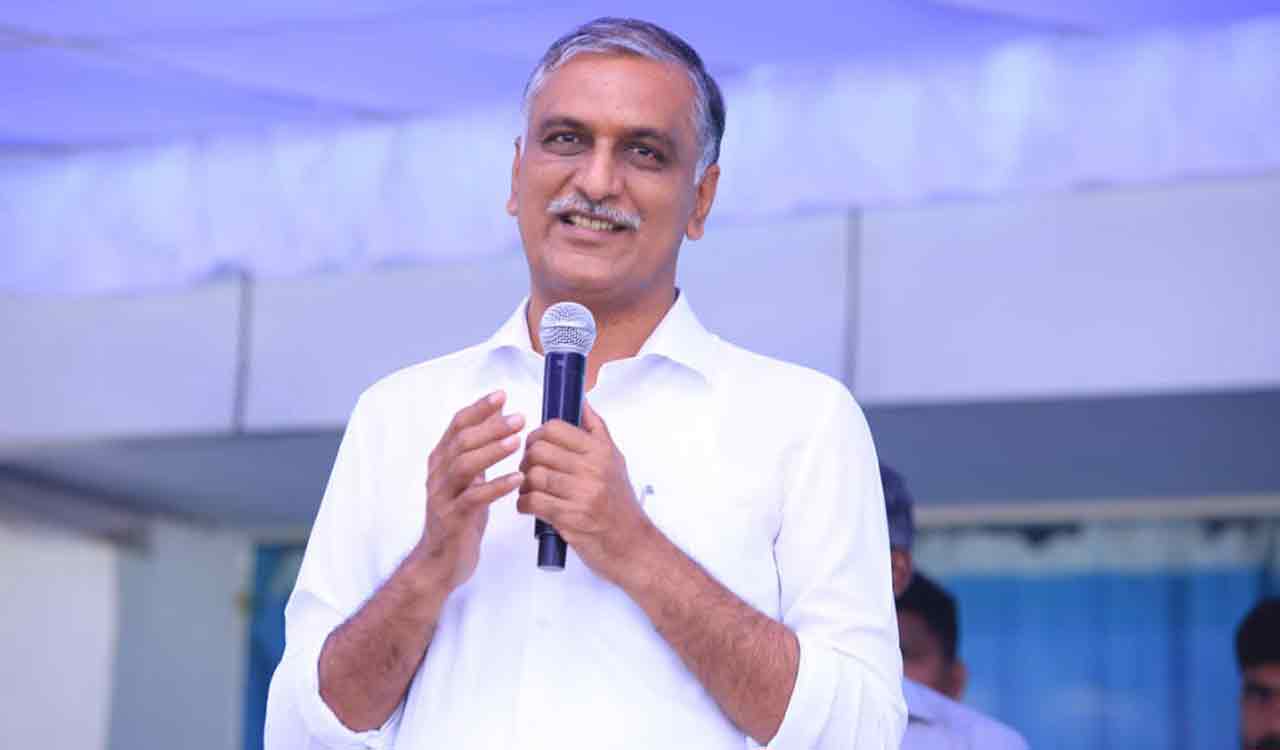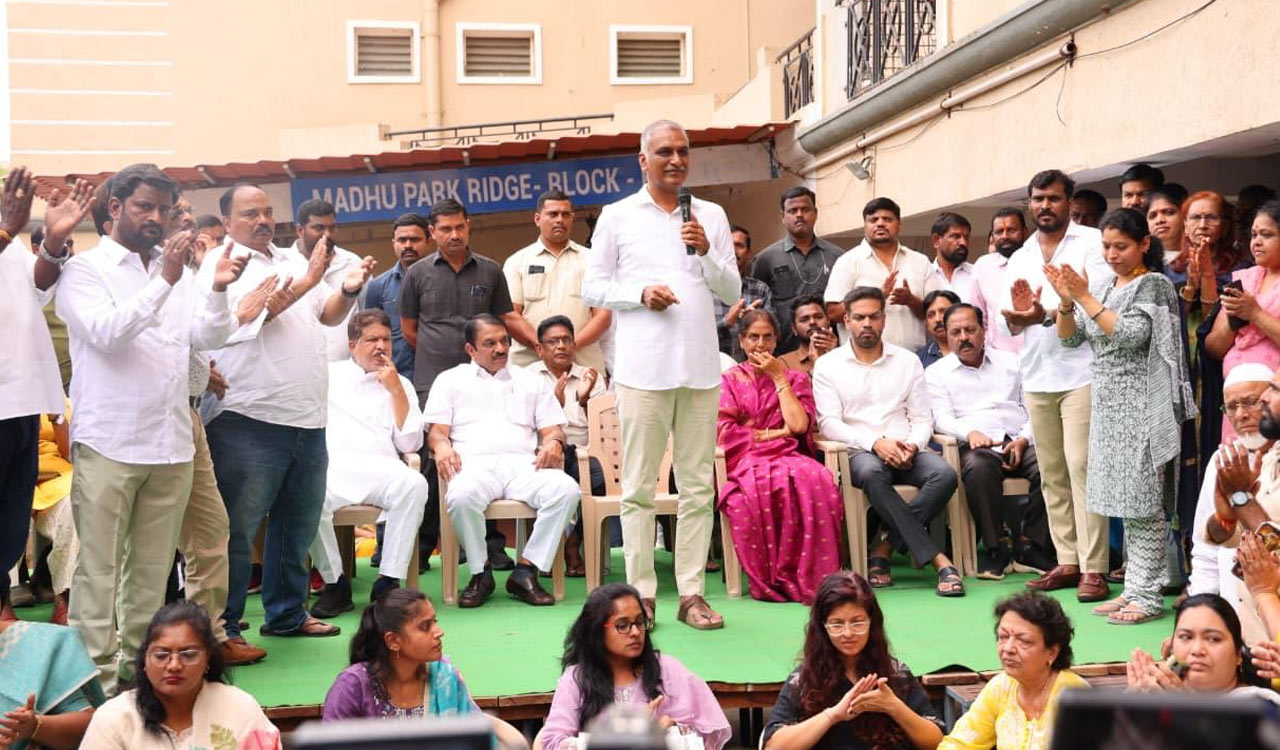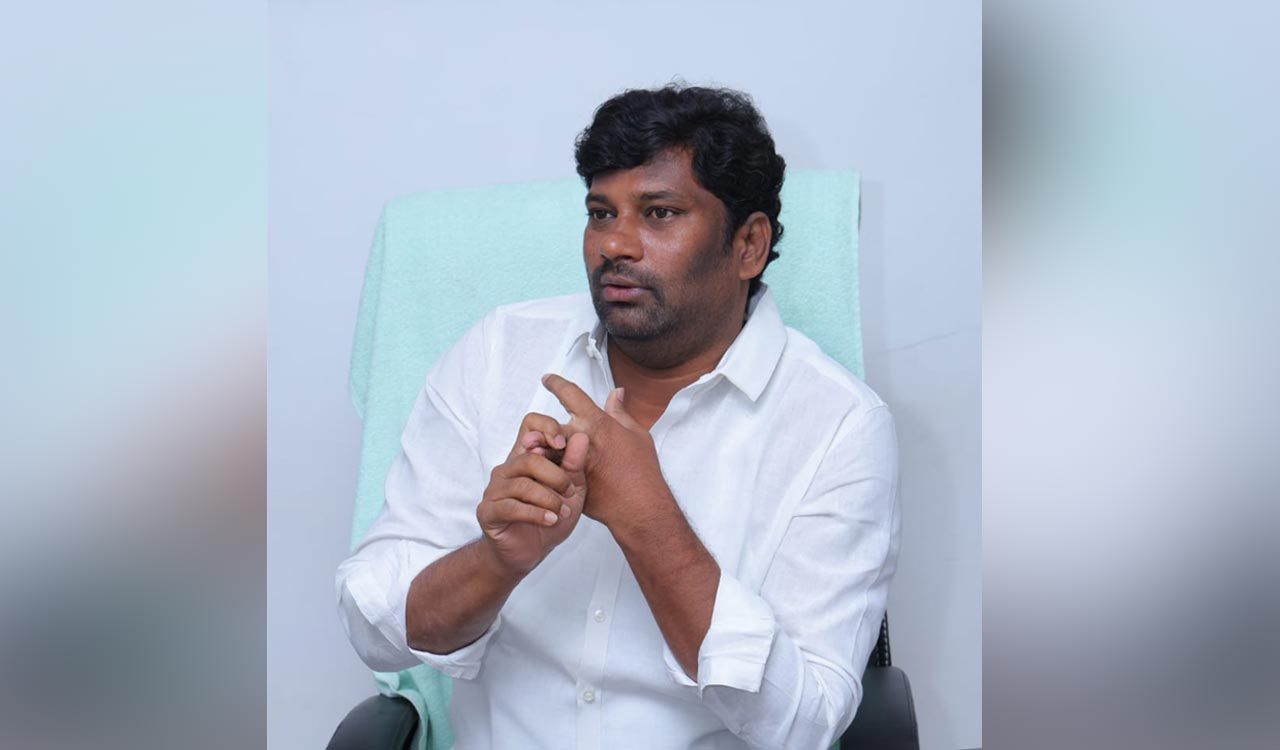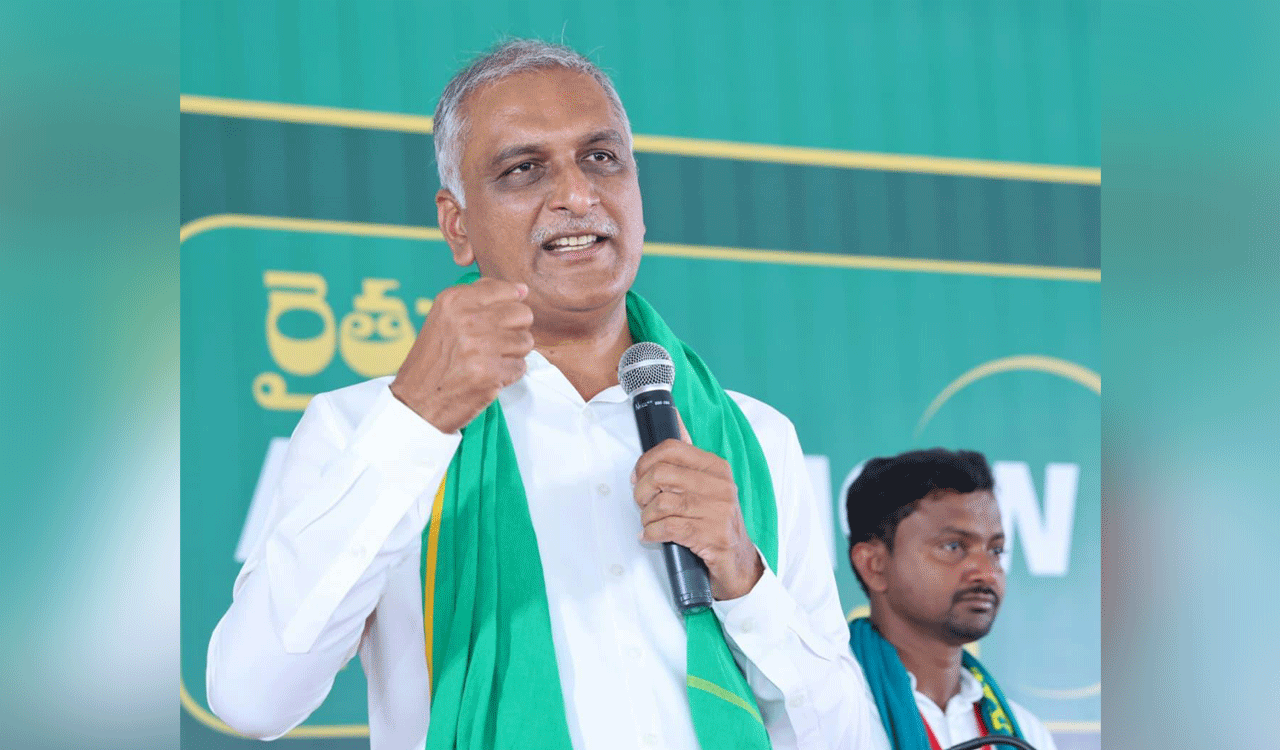Telangana High Court posts Ghose Commission report case to Friday as KCR, Harish question findings
Former Telangana Chief Minister K. Chandrashekhar Rao and ex-Finance Minister T. Harish Rao approached the High Court seeking to nullify the Ghose Commission report on alleged irregularities in the Kaleshwaram Project. They argue the report is politically driven and procedurally flawed, citing violations under Sections 8B and 8C of the Commissions of Inquiry Act.
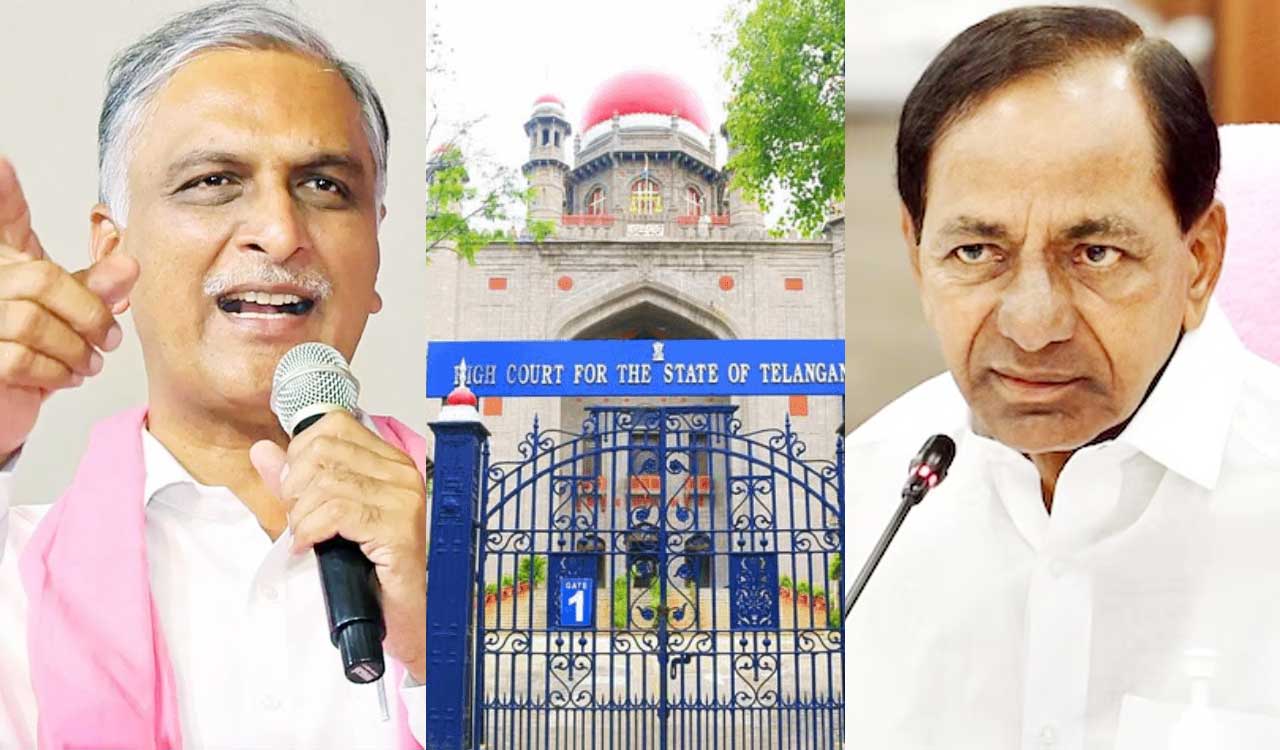
By Legal Correspondent
Hyderabad: The political heat over the Kaleshwaram Lift Irrigation Project spilled into the Telangana High Court on Thursday as former Chief Minister K. Chandrashekhar Rao and former Finance Minister T. Harish Rao mounted a fierce challenge to the Justice (Retd.) P.C. Ghose Commission report, calling it a politically motivated exercise aimed at tarnishing their reputation.
Chief Justice Aparesh Kumar Singh and Justice G.M. Mohiuddin of the Telangana High Court on Thursday took up the hearing of writ petitions filed by Chandrashekar Rao and Harish Rao, seeking to quash the report of the Ghose Commission that probed alleged irregularities in the execution of the Kaleshwaram Lift Irrigation Project.
Appearing for KCR, Senior Counsel Dama Seshadri Naidu submitted that KCR put his life on the line for the cause of Telangana statehood and that his reputation was being tarnished through politically motivated findings. He argued that the 60-page summary of the Commission’s report was released to the media during a press conference held by Chief Minister A. Revanth Reddy, while the petitioners themselves were not supplied with a copy of the full report.
This, according to Naidu, was a calculated move to inflict political damage. Naidu stressed that the Commission was bound to follow the procedure prescribed under the Commissions of Inquiry Act, 1952. Since no notice under Section 8B or 8C had been served on KCR, he had no opportunity to defend himself or cross-examine witnesses. This amounted to a violation of natural justice, warranting the setting aside of the report, he said.
Representing Harish Rao, Senior Counsel Aryama Sundaram argued that both petitioners were only issued notices under Section 5(2) to appear before the Commission as witnesses. However, despite this, the Commission went on to make adverse findings against them, including allegations of corruption and embezzlement of public funds, without issuing mandatory notices under Sections 8B and 8C. He relied on Supreme Court precedents in LK Advani and Kiran Bedi, where inquiry commission reports were quashed for failure to comply with these provisions.
Sundaram asserted that the inquiry was carried out with the sole intent to politically discredit the previous BRS government. He added that the collapse of one pillar of the Medigadda Barrage was due to natural reasons like untimely monsoon rains, and not to design or engineering flaws, as alleged in the report. He maintained that the Commission’s report was illegal, procedurally flawed and motivated by malice.
The bench questioned the Advocate General on three critical aspects: (i) What is the current status of the Kaleshwaram Commission report; (ii) Whether the report had been officially released into the public domain; and (iii) Whether notices under Section 8B had been issued to the petitioners, as required by law.
Advocate General A. Sudarshan Reddy, appearing for the State, submitted that the Cabinet had approved the Ghose Commission report on the basis of the 60-page summary, and it was decided to place the report before the Assembly for discussion. He contended that the petitioners, being MLAs, would have an opportunity to respond to the report during the legislative debate. He also argued that the notices served to the petitioners were effectively notices under Section 8B, even if the specific section number was not mentioned.
He also denied that the report had been officially placed in the public domain, clarifying that it would only be released after tabling in the Assembly. He said that the 60-page report was prepared so that the Cabinet could easily understand the commission report, which was voluminous and ran over 650 pages. Reddy also submitted that the cabinet had approved the Ghose Commission report based on the 60-page report.
The Advocate General also urged the Court not to pass any interim orders at this stage.
Senior Counsel S. Niranjan Reddy, appearing for the Commission, contended that there was no prescribed proforma for a Section 8B notice, and that such notices had in fact been issued. He maintained that the Commission’s findings were recommendatory in nature and not binding; therefore, setting aside the report was not necessary. He submitted that the cabinet has every right to place the report before the Assembly and that the Court should not interfere at this stage.
In reply, the petitioners’ counsel argued that the notices issued were only Section 5(2) notices to appear as witnesses, not Section 8B notices to defend themselves. Dama Seshadri Naidu submitted that the notification for appointment of three member commission for inquiry was a judicial inquiry commission, and the findings of that commission would be binding and the government could initiate criminal proceedings based on the findings of the report and therefore sought to set aside the report of the commission because of procedural irregularities. They maintained that the Commission arrived at adverse findings without giving them a chance to present evidence in their defence or cross-examine witnesses, thereby violating natural justice.
The Chief Justice asked the Advocate General whether action would be taken on the report before or only after it is tabled in the Assembly, pointing out that the Commissions of Inquiry Act requires the government to act on such reports within six months.
The AG said that he will seek instructions from the government. The matter was adjourned to Friday, with the Advocate General directed to seek instructions from the government.
Click here for an explainer on this issue.
Related News
-
Harish Rao demands action against fake news peddlers
-
Harish Rao alleges real estate agenda behind Musi project, demands withdrawal of eviction notices
-
Controversy over treatment of BRS leader Balka Suman in jail; Officials deny harassment
-
Harish Rao slams Centre and State over farmer welfare, seeks subsidy on agri equipment
-
Chasing dreams, raring to go: Telangana IM Dhruva poised for greatness
6 hours ago -
Patna court refuses transit remand for Andhra police in IPS officer case
6 hours ago -
TTD to deploy advanced lab for laddu prasadam quality
6 hours ago -
Sports Briefs: Sports Shooting Conclave in city
6 hours ago -
India unveils first national counter-terrorism policy ‘Prahaar’
6 hours ago -
Supreme Court refuses plea on Tirumala laddu SIT review
6 hours ago -
Jawaharlal Nehru University protest against VC turns violent, student groups clash
6 hours ago -
Age is only a number for Vijay Kumar
6 hours ago

